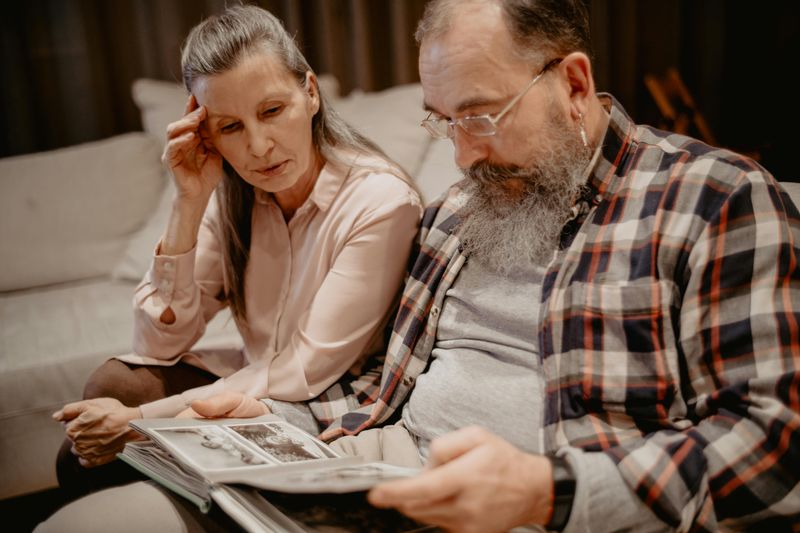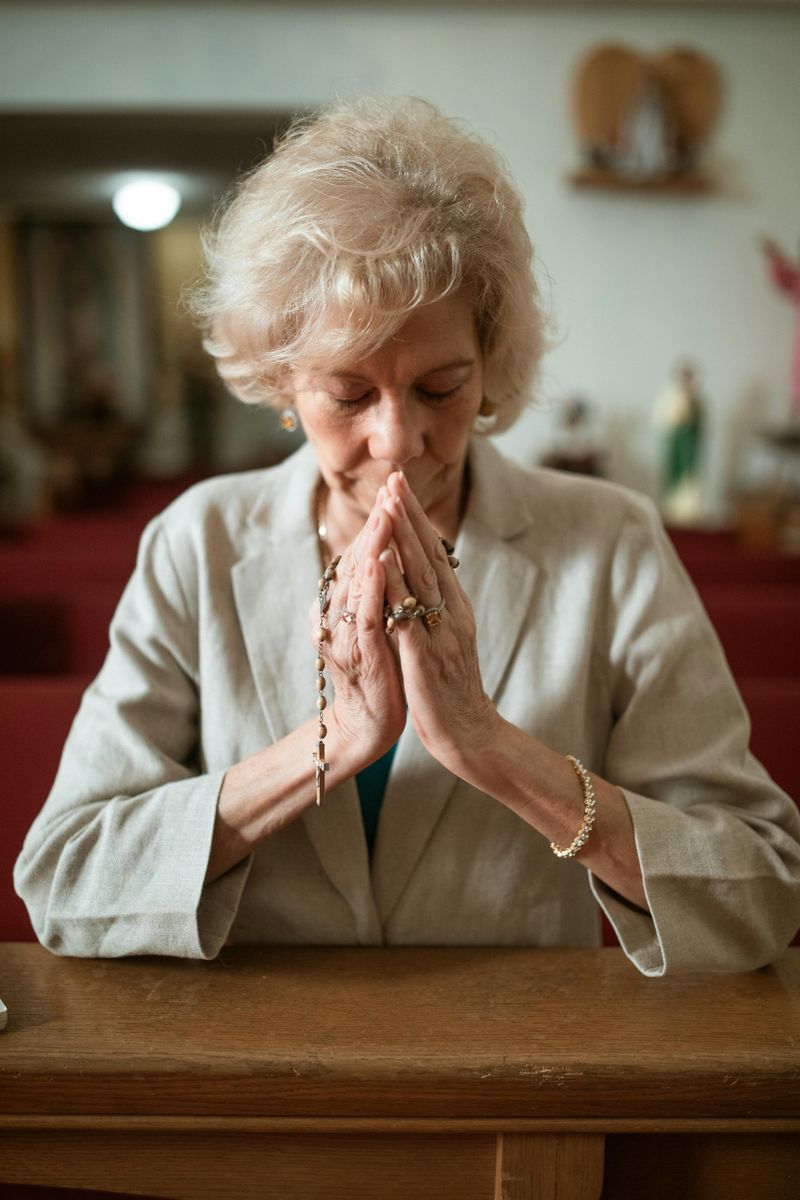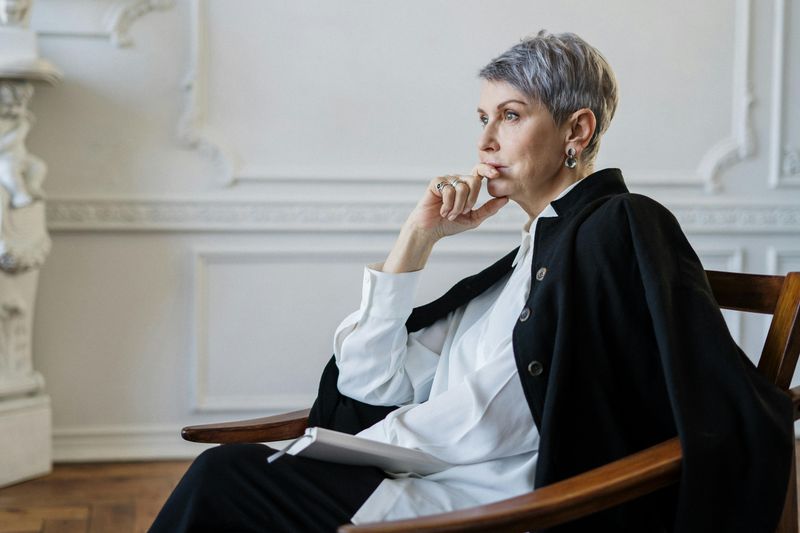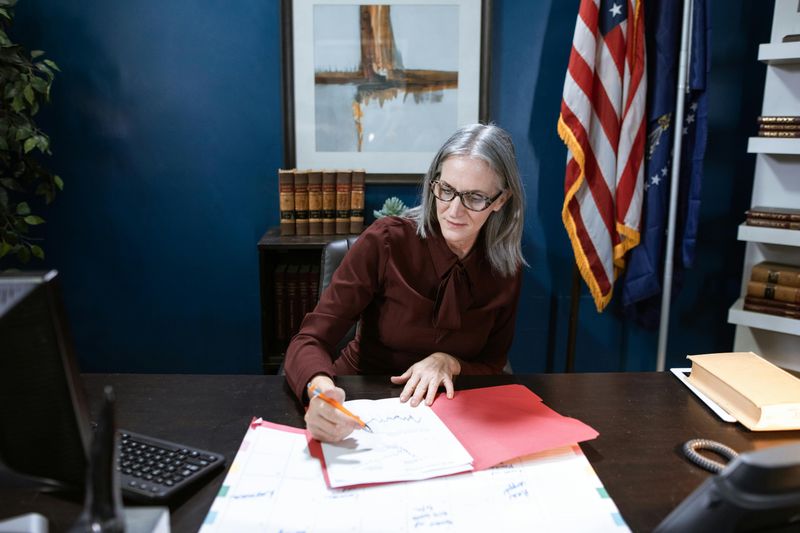20 Reasons Women Over 60 Stay in Unhappy Marriages

Many women over 60 remain in marriages that no longer bring them joy. This complex decision stems from a mix of practical concerns, emotional ties, and societal pressures. Understanding these reasons helps shed light on the challenges older women face when considering major life changes.
1. Financial Dependence Traps

After decades as homemakers, many women lack independent income sources or retirement savings. Their financial security has become completely intertwined with their husband’s pension, investments, or Social Security benefits.
The stark reality of potentially living on a single, reduced income creates genuine fear. Women who haven’t worked outside the home may lack marketable skills or face age discrimination in the workforce.
This economic vulnerability creates golden handcuffs, making separation financially devastating despite emotional unhappiness.
2. Poverty Fears Loom Large

Women often outlive their spouses and typically earn less throughout their working years. This creates a perfect storm of financial vulnerability in their golden years.
The statistics are sobering – elderly single women face significantly higher poverty rates than their married counterparts. Many have witnessed friends or family members struggle financially after divorce or widowhood.
The prospect of downsizing dramatically, losing health insurance, or depleting limited savings creates paralyzing fear that overshadows marital unhappiness.
3. Healthcare Access Worries

For many women over 60, health insurance comes through their husband’s retirement plan or Medicare supplement. Divorce could mean losing crucial coverage during years when medical needs typically increase.
Managing chronic conditions becomes a primary life focus for many in this age group. The thought of navigating complex healthcare systems alone, with potentially reduced financial resources, creates genuine panic.
Even women with their own coverage worry about affording deductibles, prescriptions, and uncovered treatments on a single income.
4. Guilt About Breaking Vows

Many women in this generation were raised with strict beliefs about marriage permanence. “For better or worse” wasn’t just a phrase but a sacred promise they intended to honor regardless of personal happiness.
Years of religious teaching or family expectations created deep-rooted guilt about considering divorce. Some women feel they would be disappointing not just their spouse but their entire community and even their God.
This moral weight becomes heavier when their husband hasn’t committed obvious transgressions like affairs or abuse that might “justify” leaving in others’ eyes.
5. Religious Beliefs Hold Strong

Faith communities often emphasize marriage sanctity and permanence. Women who’ve been lifelong members of traditional religious groups face enormous pressure to maintain their marriages regardless of personal fulfillment.
Their spiritual identity and social network are deeply intertwined with their marital status. Divorce might mean losing not just a spouse but an entire support system and spiritual home.
Some genuinely believe enduring unhappiness in marriage is their spiritual duty or cross to bear, making personal happiness seem selfish by comparison.
6. Community Judgment Concerns

Women who’ve spent decades in the same community worry about becoming the subject of gossip and judgment. Their identity as part of a couple is how neighbors, friends, and family have known them for years.
In tight-knit communities, particularly in smaller towns or religious circles, divorce still carries stigma. The prospect of attending social events alone or explaining the separation repeatedly feels overwhelming.
Many fear being viewed as the one who “gave up” or couldn’t make it work after so many years, especially if their husband maintains a positive public image.
7. Support Network Limitations

At 60-plus, women often face a shrinking circle of close friends and family. Many peers have moved away, faced health challenges, or passed away.
Starting over without robust emotional support feels terrifying. Their husband, despite relationship problems, represents a known quantity and someone to count on for practical matters like home repairs, driving at night, or emergency assistance.
Adult children may be busy with their own families or live far away. The prospect of true independence without a safety net keeps many women in marriages that no longer fulfill them.
8. Emotional Exhaustion Reality

Many women have spent years trying to improve their marriages through counseling, communication efforts, or personal sacrifices. The emotional toll of these attempts has left them drained and resigned.
By their 60s, many simply lack the energy for the intense emotional work of separation. The thought of confrontations, legal meetings, and dividing decades of shared possessions feels insurmountable.
Some have reached a state of emotional numbness that, while not happy, feels more manageable than the upheaval divorce would bring.
9. Fear of Unknown Territory

After decades of marriage, the prospect of navigating life alone creates genuine terror for many women. Simple tasks their husband always handled – from managing investments to home repairs – suddenly loom as overwhelming hurdles.
Dating in one’s 60s or 70s presents a completely unfamiliar landscape. Many women haven’t dated since their early 20s, before online platforms and modern relationship norms developed.
Even everyday decisions feel daunting after years of compromise and consultation with a partner, making the familiar unhappiness seem safer than uncharted territory.
10. Decades of Shared History

Forty-plus years of marriage creates a tapestry of shared experiences impossible to untangle. Children’s births, career milestones, home purchases, and family holidays form powerful bonds despite current unhappiness.
Photo albums, heirlooms, and inside jokes represent a lifetime of connection. Many women struggle to imagine abandoning this shared history and starting from scratch with someone new – or alone.
Their identity has become so intertwined with their marriage that separation feels like losing not just a partner but parts of themselves and their past.
11. Improvement Hope Persists

Many women cling to occasional good days as evidence things might improve. They remember the person their husband once was or glimpse that person during rare positive moments.
Retirement, health scares, or grandchildren sometimes trigger positive changes in long-troubled marriages. Some women have witnessed these transformations in friends’ relationships and hold out hope for their own.
The thought that they might leave just before things finally get better – after enduring decades of difficulty – keeps many women committed to marriages that show little objective sign of changing.
12. Adult Children Considerations

Many women worry divorce would force adult children to take sides or disrupt family gatherings. The thought of separate holiday celebrations or grandchildren shuttling between homes feels heartbreaking.
Some fear their children, despite being grown, would feel their childhood memories are somehow tainted by a late-life divorce. Others worry about burdening adult children with emotional or financial support needs after separation.
Even women whose children support their happiness may hesitate to create family complications after decades of maintaining stability for everyone else.
13. Emotional Co-dependence Patterns

Decades of marriage often create unhealthy but familiar emotional patterns. Many women have built their identity around being needed by or caring for their spouse, making separation feel like abandoning their purpose.
Years of accommodating a difficult partner can create a distorted sense of normalcy. Women may no longer recognize problematic dynamics as unusual or unacceptable after decades of adaptation.
The emotional rhythms of even troubled relationships provide predictability and a sense of control that starting over would disrupt.
14. Starting Over Seems Impossible

Beginning again in one’s 60s or 70s requires tremendous courage many women feel they don’t possess. Finding new housing, establishing new routines, and building new connections requires energy that may already be depleted.
The thought of living alone after decades of companionship feels terrifying. Even women who spend much time apart from their spouses fear the finality of officially ending the relationship.
Many have watched friends struggle after late-life divorces, facing financial hardship or loneliness that seems worse than an imperfect marriage.
15. Too Late Mentality Prevails

Many women have internalized society’s message that romance and happiness belong to the young. They’ve been conditioned to believe their prime years are behind them, making dramatic life changes seem pointless.
“Why bother now?” becomes a common refrain. With potentially limited years ahead, many calculate that enduring unhappiness seems easier than disrupting everything for an uncertain future.
This mindset ignores that women in their 60s may have 20-30 years of life ahead – plenty of time to create new happiness.
16. Caretaking Responsibilities Bind

Years of traditional gender roles have conditioned many to see caregiving as their primary purpose. Their identity as a nurturing wife overrides personal needs for happiness or fulfillment.
Some fear no one else would provide adequate care, while others worry about the financial implications of professional caregiving if they separated.
17. Self-Worth Has Diminished

Years of criticism, neglect, or simply being taken for granted can erode a woman’s confidence. Many begin to believe they don’t deserve better or couldn’t attract a more fulfilling relationship.
Some have internalized negative messages from their spouse or society about their value as aging women. They question whether anyone else would want them with their wrinkles, health issues, or aging bodies.
This diminished self-image creates a vicious cycle where staying in an unhappy situation seems like their only realistic option.
18. Legal Complexity Intimidates

Divorcing after decades of marriage involves untangling complicated financial assets. Retirement accounts, Social Security benefits, and property division become overwhelmingly complex.
Many women lack knowledge about family finances or feel intimidated by legal processes. Finding affordable legal help that specializes in gray divorce adds another layer of difficulty.
The prospect of navigating paperwork, court appearances, and negotiations during what should be peaceful retirement years drives many to maintain the status quo despite unhappiness.
19. Habit Has Replaced Love

After 40+ years together, daily routines become deeply ingrained. The rhythm of shared meals, television shows, and household patterns creates a comfortable predictability many fear losing.
Even unhappy marriages develop familiar patterns that require little thought or emotional energy. Breaking these habits feels more disruptive than continuing in a relationship that provides structure if not joy.
Many women find this emotional autopilot easier than the conscious effort required to create a new life.
20. Home Attachment Runs Deep

Many women have strong emotional connections to their homes filled with decades of memories. Divorce would likely mean selling the family home where children were raised and holidays celebrated.
The thought of downsizing or moving to unfamiliar surroundings feels devastating. Gardens they’ve tended for decades, renovations they’ve overseen, and neighborhoods where everyone knows them represent stability and identity.
This attachment to physical space sometimes outweighs the emotional cost of remaining in an unfulfilling relationship.

Comments
Loading…